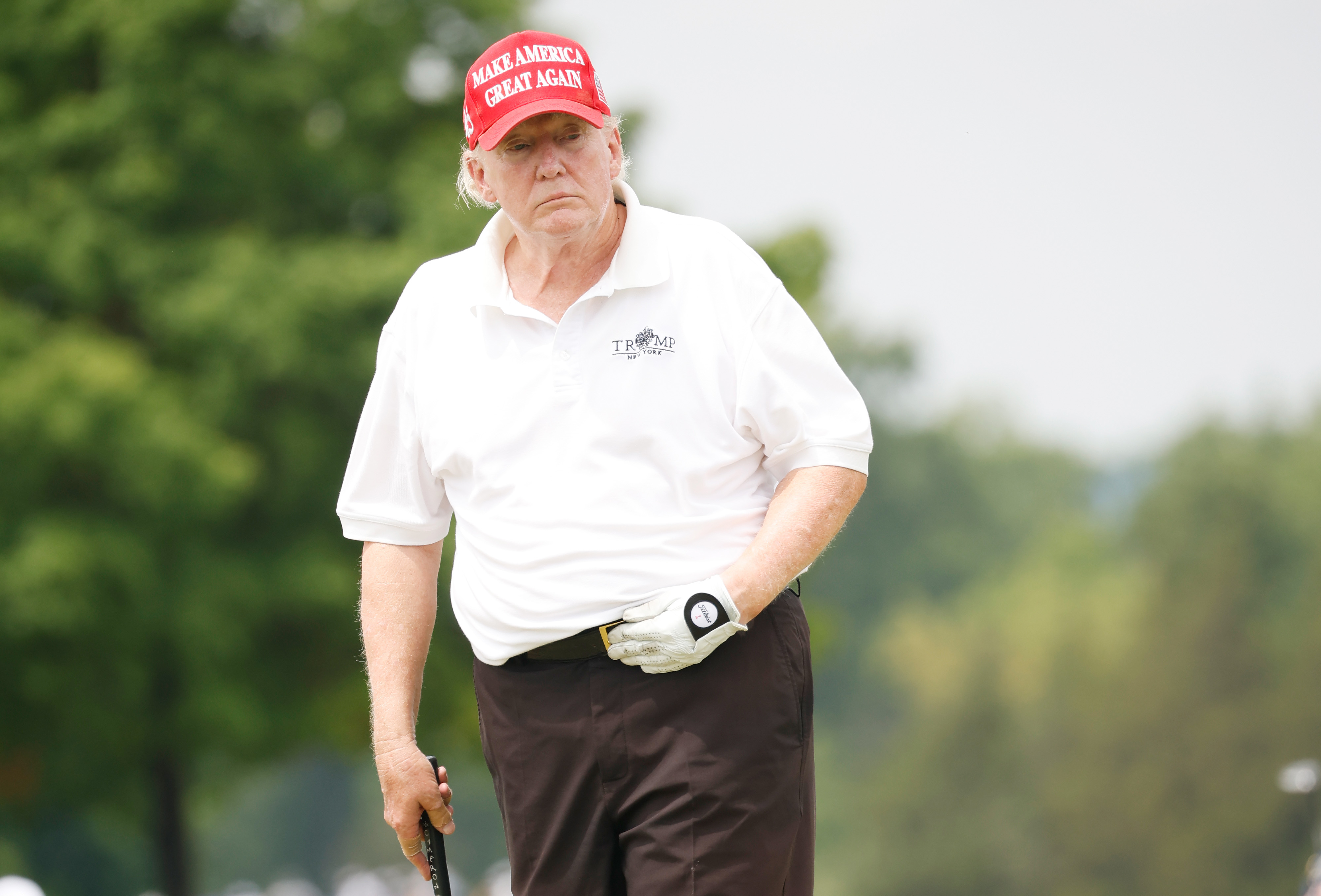Why does Trump tell obviously false lies?

The key here is that these lies aren’t even minimally plausible: they are outrageously absurd statements, that can perhaps be explained, if they have any functional explanation at all, as cult loyalty tests. For example:
“I am pleased to report, for those that care, that I just won the Senior Club Championship (must be over 50 years old!) at Bedminster (Trump National Golf Club), shooting a round of 67,” Trump, the 45th president of the United States, posted on the social media site. “Now, some people will think that sounds low, but there is no hanky/lanky. Many people watch, plus I am surrounded by Secret Service Agents. Not much you can do even if you wanted to, and I don’t.
“For some reason, I am just a good golfer/athlete — I have won many Club championships, and it’s always a great honor!”
My golf knowledge is fairly marginal, but even I understand that it’s physically impossible for a 77-year-old to shoot a 67 on a legitimate golf course. That includes 77 year olds who were once the greatest golfers in the world, let alone an at one time pretty good for an amateur rich guy like Trump, who couldn’t have shot a legitimate 67 on the best day of his life 50 years ago, let alone his his decadent decrepitude. It’s as if he had claimed to dunk a basketball on a ten-foot hoop yesterday, or to have run a 4:15 mile.
Side note: What’s up with “hanky/lanky?’ Typo? Malapropism? Why am I even asking these questions?
So what is Trump doing when he says these kinds of things, which of course he does all the time? Is it just pathological compulsive lying about everything, produced by his incredibly extreme narcissism? Is there any pragmatic motivation here? (Loyalty test, etc.)
In any event, that this lunatic has a 27% chance of being the next president of the United States has me surfing expat websites.
. . . Arendt’s famous quote from The Origins of Totalitarianism seems particularly apt here:
In an ever-changing, incomprehensible world the masses had reached the point where they would, at the same time, believe everything and nothing, think that everything was possible and that nothing was true. … Mass propaganda discovered that its audience was ready at all times to believe the worst, no matter how absurd, and did not particularly object to being deceived because it held every statement to be a lie anyhow. The totalitarian mass leaders based their propaganda on the correct psychological assumption that, under such conditions, one could make people believe the most fantastic statements one day, and trust that if the next day they were given irrefutable proof of their falsehood, they would take refuge in cynicism; instead of deserting the leaders who had lied to them, they would protest that they had known all along that the statement was a lie and would admire the leaders for their superior tactical cleverness.


